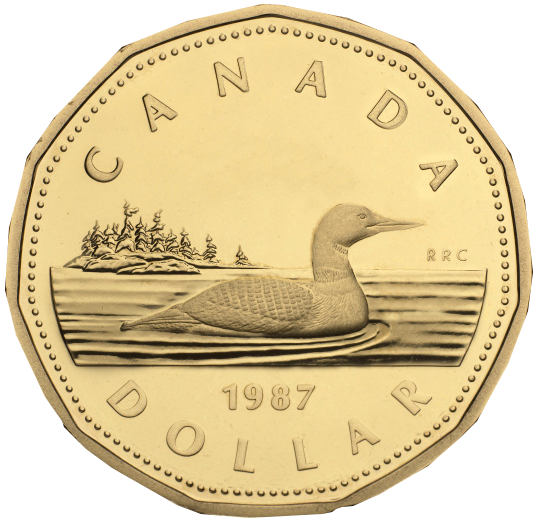cross-posted from: https://programming.dev/post/28035609
From my reading so far I’m looking at ETFs with WS, and that I should start with the TFSA. Am I on the right track and what do you recommend?
I’m not a financial professional but it depends on the purpose of your savings.
If you plan on buying a house then maxxing your FHSA contributions is a good place to start, probably before a TFSA.
After this, it depends on your work and income status. If you’re making decent money, I’d invest in an RRSP before a TFSA since you get both a tax credit and can borrow from your RRSP as a first-time home buyer (I think 15 years to repay). If you don’t need the tax break or aren’t really thinking of buying a home in the mid-term future, then a TFSA.
ETFs are a good choice for the inexperienced, buy-and-hold investor. You can either pick a few sectors you know something about, or buy a broad fund like a TSX 60 fund. ETFs are low cost and you can buy yourself with a discount online broker like Wealthsimple or Questrade.
This is a bad time to invest in anything.
We’re entering a global depression
First you need to ask what your goals and timelines are. I assume you’re asking because you’ve already decided you’re looking to invest, but short vs long term investing is still very important to ask.
TFSA is usually the best account to invest in first. Do not day trade in your TFSA, it has the following risks:
- If you buy and sell short term investments, the CRA will still tax you on them as income
- If you lose money in your TFSA your contribution room is gone forever.
So it’s best to hold ETFs and longer term stable investments in your registered accounts.
WS does offer packages but they don’t have a Canadian fund in their robo accounts. If you want Canadian companies you’ll have to find either specific stocks or ETFs directly.
Purpose has a lot of different ETF options you can choose from, but I don’t have a lot of knowledge about Canada specific funds.
Wealthsimple and QuestTrade both offer free trades, but with WS they’ll get you on exchange fees for non CAD investments.
Unless your income is really low, look into FHSA. It’s a stupidly advantageous investment mechanism. It’s like RRSP in that it reduces your taxable income, except it doesn’t become taxable when you use it. (Although you can only use it for a real estate purchase.)
As for investing in Canada, lots of banks and financial advisors offer managed Canada-only investment funds.
Personally, I just go for socially responsible funds anytime I can. Lower returns, but it doesn’t tend to crash as much as the general market when the news talk about massive market downturns, and above all, it doesn’t come with the guilt of investing in weapons or fossil fuels. And well, even if it’s in the US, I really don’t mind investing into a company that’s not morally terrible.
Depends on how worried you are and how safe or risky you want to play it given the world’s uncertainty.
Contribute to your TFSA what you can afford to (within your contribution limit). If you are super risk averse but want to lend money to Canadian banks at a better rate than savings accounts, a GIC (guaranteed investment certificate) would probably be the best choice, aka term deposit. Returns are lower but aside from the time to maturity there’s no downside risk.
Passive index funds are on the whole relatively low risk (in a line must go up world, anyway). If you want a TSX index run by a Canadian bank rather than Blackrock you could look at ticker symbol TTF (TD), or ZCN (BMO). There are probably various fund companies that are Canadian but I just haven’t researched it.
But whatever you do (aside from insane Baysteeetbets type of gambling on the market), the important thing is that you are starting to save early. That is excellent, when you’re starting out that’s more crucial than whether your investment yields 4.5% or 5% in a year.
Seconding GICs. I think market uncertainty is pretty much at peak right now, and there are a lot of GIC options that trade between guarantee and potential – but the closest they come to “risk” is having the money locked in for some period. Short of civilization collapsing, your money will grow.
Short of civilization collapsing, your money will grow.
Exactly, this is how I get over the what-ifs and worry related to risk as someone more averse to it. If I lose 50% of what are supposed to be my stable investments, I probably have other bigger problems to deal with than my investments.
Anything to do with housing. A house is always worth a house.
OP, do not follow this advice. Housing is for shelter. As an investment, you’re putting all of your eggs in one basket, in one country, in one narrow local area, in a risky market. Even REITs historically underperform the humble broad-market index ETF.
Do not drink the boomer kool-aid that it’s a magic get rich quick scheme and they’re super smart when in reality, they got lucky.
Buy or build a duplex or split a house into apartments. You’re increasing housing supply and generating income at the same time.
Except when the bubble bursts, or the market turns.
Buying a house now just before an election, where the subsequent Government will almost certainly take drastic steps to alleviate the housing crisis, is begging to lose significant value to depreciation.
Buy a house to have a home? Absolutely. Buying one solely as an investment? I’d wait a year to see how the dust settles first.
Who said become a landlord? Buy a timber tract, invest in home repair, appliance companies, and building contractors. Housing demand is way up right now. Sure there will be downturns, but I doubt there will ever be a Canadian housing bubble.
A house is always worth a house.
It was this tautology I took issue with. I do agree that there are many housing related ways to invest that are far less susceptible to market manipulation.




